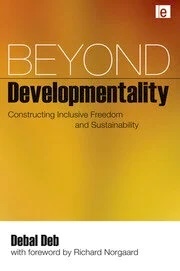CIS believes that all humans have the right and capability to understand the complexities of nature and society. The prevalent educational system tends to intimidate ordinary people into believing that disciplines of science are too esoteric for them to understand. Increasing specialization of disciplines has created a privileged class of people whom Jose Òrtega y Gasset in The Revolt of the Masses called “the boastful ignoramus” – specialists who know details of tiny corners of the knowledge universe, but are ignorant of the social relevance and implications of their specialty. Specialists of one discipline seldom know anything about other, even related, disciplines. The esoteric jargon of specialization alienates the specialist as well as the masses from the knowledge commons.

The rigid boundaries of specialization also erode the scientists’ accountability for their research, no matter how severe social consequences that might have. This, on one end, allows the scientists and technocrats engaged in developing nuclear, chemical and biological weapons to remain free from guilt and compunction for their crimes. On the other end, the crucial livelihood implications of scientific and technological development remain unknown to the public. Thus, big dams, nuclear reactors, genetic engineering and even IQ theory – are promulgated by mass media as ‘science for the benefit of humanity’. The short term benefits, institutional charisma, and technological marvels are counted as the achievements of science. Like the fourth face of the Trimurti, the political aspect of science – the power structure that enlists big technology for big industrial profit – remains invisible.

To promote public understanding of science, it is imperative to restore access of the masses to the knowledge commons. CIS aims to do this through dialogues between diverse disciplines. Like the Passiflora (passion flower) leaf, the branching disciplines are united at the base, which constitutes the quest for knowledge and social action. We have therefore chosen the Passiflora leaf as the logo of CIS, to signify the interdisciplinary spirit of its activities.
The knowledge of nature and society ought to be used to not only explain the world, but as Marx put it, to change the world. The knowledge of the natural world and its complex interconnections with the multitude of beings should elicit activism to protect nature, if only for the well-being of humans in the long run. The knowledge of how economic growth and developmentality destroy nature and dehumanize people should motivate one to search for alternative ways of living. The knowledge of the prevailing inequalities and injustices in human societies should sufficiently perturb one to seek to establish intergenerational justice and sustainability.
 CIS believes that the current prevalent mode of industrial development is neither the best nor the final stage of social development; rather, development has increasingly failed to deliver the grand promises of liberty and equality which European Enlightenment held up for the masses. CIS believes that most of the fruits of development has been usurped by the industry-bureaucracy-politician clique, at the cost of the natural world and indigenous ecosystem peoples in all countries. This process of despoliation of nature and usurpation of the fruits of human creativity has been enhanced under the WTO regime, which seeks to commodify the entire natural world – from forests and rivers to cell lines and genes of organisms. CIS believes that establishing intergenerational equity would engender subjugation of private interests to that of the community; that indigenous ecological ethic contains the seed of subversion of the hegemony; and that realization of the significance of qualitative development would emancipate human society and nature from shackles of inequitable growth.
CIS believes that the current prevalent mode of industrial development is neither the best nor the final stage of social development; rather, development has increasingly failed to deliver the grand promises of liberty and equality which European Enlightenment held up for the masses. CIS believes that most of the fruits of development has been usurped by the industry-bureaucracy-politician clique, at the cost of the natural world and indigenous ecosystem peoples in all countries. This process of despoliation of nature and usurpation of the fruits of human creativity has been enhanced under the WTO regime, which seeks to commodify the entire natural world – from forests and rivers to cell lines and genes of organisms. CIS believes that establishing intergenerational equity would engender subjugation of private interests to that of the community; that indigenous ecological ethic contains the seed of subversion of the hegemony; and that realization of the significance of qualitative development would emancipate human society and nature from shackles of inequitable growth.
Agroecology, as a scientific discipline as well as a movement, is an essential means to attaining intergenerational social and environmental equity, and opposing the prevalent system of commoditization of all fruits of human labour and innovation. It’s a necessary step toward building sustainability in the production and consumption process, and reinstating the intrinsic value of nature. Agroecology – an integrated system of food production based on protection and enhancement of biodiversity on-farm at the levels of species, genetic and ecosystem architecture, with ZERO EXTERNAL INPUT (except of course sunlight and rainwater), linked to a responsible consumption pattern and community-wide sharing of seeds and knowledge – is capable of re-orienting the modern eco-destructive production and consumption processes.
Basudha farm is a space to demonstrate agroecology, where we train farmers in methods of biodiversity-based food production, so as to make them independent of all external agencies – bank, corporations, government – for their food and livelihoods. Vrihi seed bank is a model of community-wide sharing of seeds of all native crops, and reinvigorate the communitarian ethos to oppose market-dependency.
Basudha and Vrihi are not supported by any government or corporate institutional. We do not sell any farm/ laboratory products. All our conservation, research and advocacy works are supported by individual donations.
We need YOUR support.

